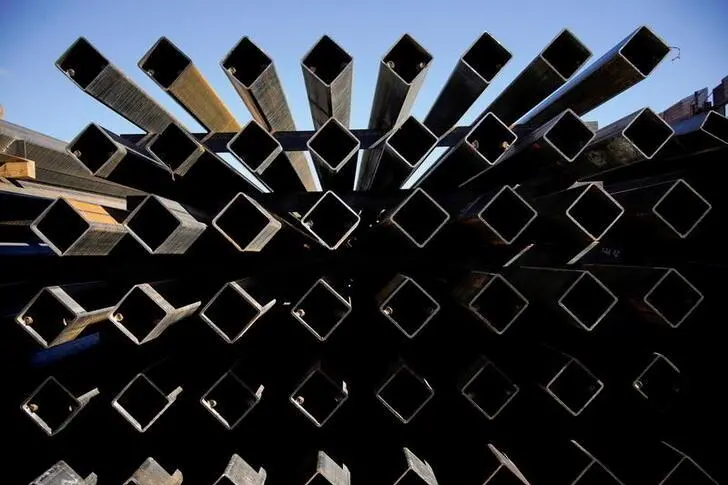PHOTO
BEIJING- China's steel consumption will dip 0.7% on an annual basis in 2022, following an expected decline of 4.7% this year, as tougher policies for the real estate market and uncertainties linked to COVID-19 curb demand, a government consultancy said.
Steel demand in the world's second biggest economy is expected to be 954 million tonnes in 2021 and to slip to 947 million tonnes next year, the China Metallurgical Industry Planning and Research Institute (MPI) said on Wednesday.
Supported by a proactive fiscal policy and prudent monetary policy, the overall economy will remain stable, but easing property investment, as well as uncertainties caused by the pandemic and raw material prices will depress steel demand, the MPI said.
"Consumption in the construction sector, energy and containers... will decrease slightly in 2022," according to the consultancy, adding that steel demand for machinery, automobile, shipbuilding and home appliances was anticipated to continue growing.
It also said overall steel consumption will find some support as the government is expected to bring forward infrastructure constructions "appropriately".
China's mammoth steel industry experienced a stellar first three quarters, with major mills earning dozens of billions of yuan in net profits as ferrous prices on the futures markets reached historical highs.
However, stringent output curbs followed, together with unexpected power rationing in the industrial sectors and a property market crisis that weakened supply and demand.
As Beijing aims to bring its carbon dioxide emissions to a peak by 2030, the ferrous sector, which contributes around 15% of emissions, is not expected to increase output.
The MPI said China will produce 1.04 billion tonnes of crude steel this year, down from a peak of 1.065 billion tonnes last year.
For 2022, the production is set to decline further. Analysts from the London-based commodities consultancy CRU told a seminar on Wednesday they expected China's steel production to fall 1.8% year-on-year in 2022.
RAW MATERIALS OUTLOOK
Driven by falling steel production and increased use of steel scrap, the government consultancy said demand for major steelmaking ingredients will also falter.
The country allowed overseas steel scrap that meets its new standards to come into the domestic market this year, leading imports to surge more than 10- fold for January-October.
China's iron ore imports will recede from a record high of 1.17 billion tonnes in 2020, falling 3.4% this year and the decline will accelerate.
(Reporting by Min Zhang and Dominique Patton; editing by Barbara Lewis) ((min.zhang@thomsonreuters.com; (8610) 5669-2105;))





















